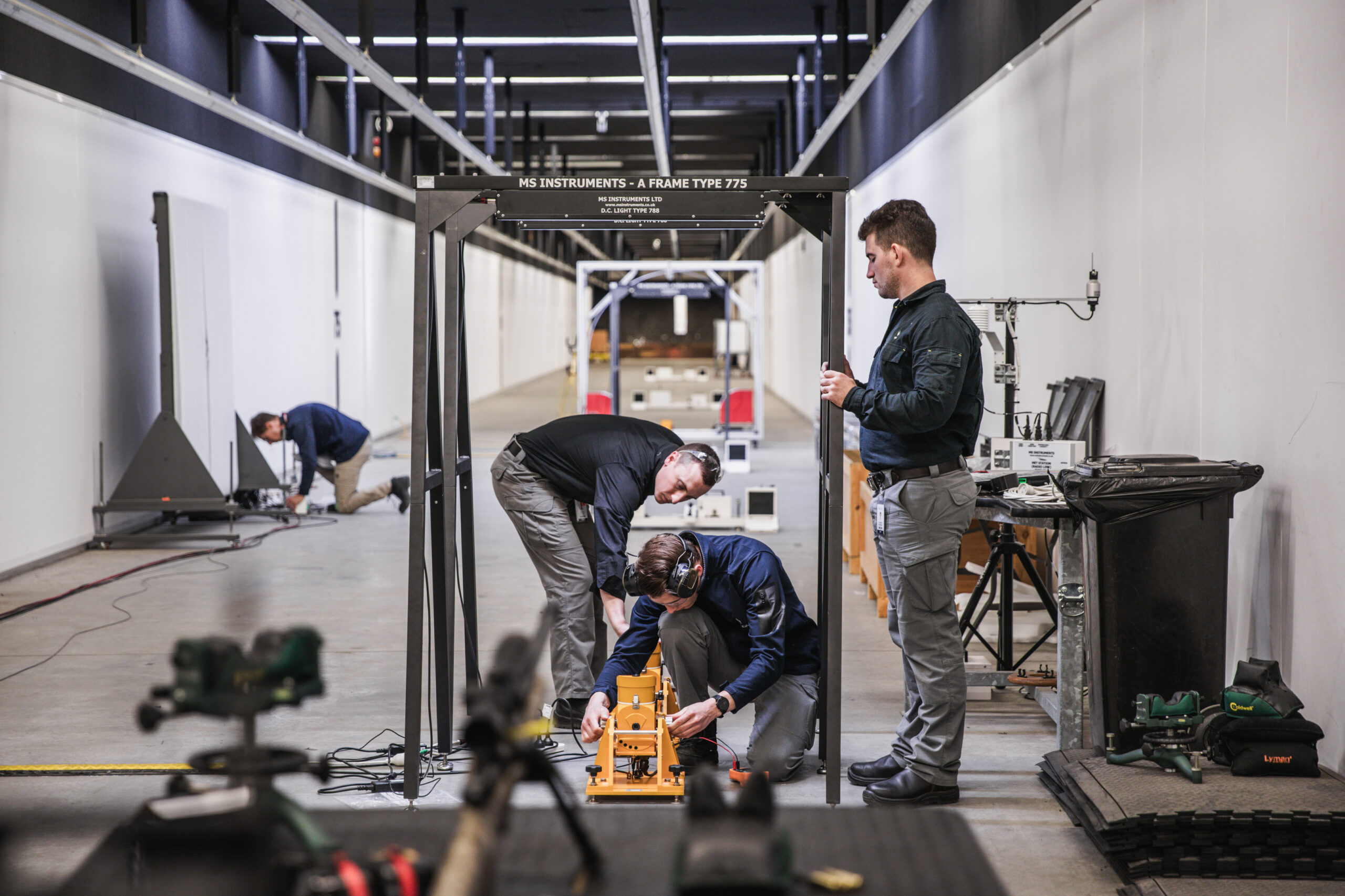NIJ 0101.06 Soft Armor Ballistic Resistance Test
The National Institute of Justice (NIJ) Standard 0101.06, commonly referred to as the NIJ Standard for soft body armor, is a critical benchmark in the ballistic testing industry. This standard ensures that body armor can effectively protect officers and civilians from gunshot impacts while maintaining a high level of comfort and mobility.
The test aims to simulate real-world conditions by subjecting the armor to bullet impacts at various velocities and angles. The goal is to evaluate how well the armor performs under dynamic conditions, ensuring it meets stringent safety requirements for public safety personnel.
This service involves rigorous testing procedures that are detailed in NIJ 0101.06. To meet this standard, a soft body armor must withstand specified bullet impacts without compromising its structural integrity or compromising the wearer's ability to move freely. The test is divided into multiple stages to ensure comprehensive evaluation.
The testing process typically involves:
- Preparation of the specimen (armor panel), ensuring it meets specific dimensions and material requirements.
- Setting up the armor in a standardized position for impact.
- Conducting bullet impacts at various velocities, angles, and types as specified by the standard.
- Evaluating the integrity of the armor after each impact to ensure no penetration or compromise.
The testing apparatus includes high-velocity impact testers capable of replicating real-world conditions. The equipment must be calibrated regularly to ensure accurate results. This service ensures that the test parameters are strictly adhered to, providing reliable and repeatable results.
Compliance with this standard is essential for manufacturers looking to gain approval from law enforcement agencies and regulatory bodies. It also ensures that the armor meets the rigorous demands placed on public safety personnel who depend on it for their protection.
The test results are detailed in a comprehensive report, which includes:
- Impact velocities and angles used during testing.
- Description of bullet types and sizes tested.
- Observations regarding the integrity of the armor after impact.
- Evaluation metrics for penetration resistance and mobility.
The report serves as a critical document for manufacturers, ensuring that they meet regulatory requirements. It also provides valuable data for continuous improvement in armor design and manufacturing processes.
| Applied Standards | Description |
|---|---|
| National Institute of Justice Standard 0101.06 | The standard defining the criteria for ballistic resistance testing of soft body armor. |
| ASTM F739-21 | Standard test method for determining the ballistic resistance of soft body armor to low velocity bullets. |
| ISO 10645:2018 | The international standard for testing and classification of personal protective equipment (PPE). |
These standards provide a comprehensive framework that ensures the accuracy and reliability of the test results. By adhering to these standards, we ensure that our clients receive high-quality testing services.
Applied Standards
| Applied Standards | Description |
|---|---|
| National Institute of Justice Standard 0101.06 | The standard defining the criteria for ballistic resistance testing of soft body armor. |
| ASTM F739-21 | Standard test method for determining the ballistic resistance of soft body armor to low velocity bullets. |
| ISO 10645:2018 | The international standard for testing and classification of personal protective equipment (PPE). |
The application of these standards ensures that our testing process is both rigorous and reliable. Compliance with these standards guarantees that the soft body armor meets the highest levels of safety and protection.
Benefits
- Ensures compliance with NIJ 0101.06, providing legal assurance for manufacturers.
- Guarantees consistent performance across all batches of armor.
- Reduces the risk of liability issues by ensuring product safety and efficacy.
- Informs continuous improvement in armor design through detailed test reports.
- Saves time and resources by avoiding retesting due to non-compliance with standards.
The NIJ 0101.06 Soft Armor Ballistic Resistance Test is a critical service that ensures the highest level of protection for those who depend on soft body armor. This test not only meets regulatory requirements but also enhances public safety by ensuring that the armor can withstand real-world ballistic challenges.
Competitive Advantage and Market Impact
- Regulatory Compliance: Ensuring compliance with NIJ 0101.06 is a significant differentiator in the market, as it demonstrates a commitment to quality and safety.
- Innovation: By providing comprehensive testing services, we support manufacturers in developing safer and more effective armor solutions.
- Customer Trust: Compliance with international standards enhances customer trust, which is crucial for long-term relationships.
The NIJ 0101.06 Soft Armor Ballistic Resistance Test is not just a service; it's an investment in the future of public safety and the reputation of our clients. By adhering to this standard, manufacturers can differentiate themselves in the market and build a strong foundation for trust and reliability.





